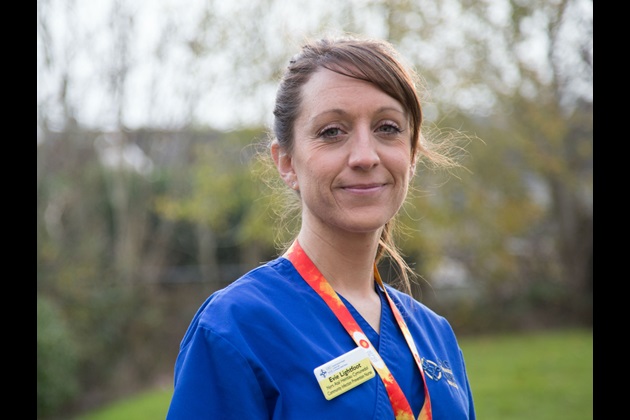Eve Lightfoot, the RCN in Wales Nurse of the Year, is supporting community nursing staff to recognise and respond to the signs of sepsis, helping to save lives and improve outcomes
“Sepsis is destructive and can develop rapidly so it’s essential to recognise acute deterioration and act fast,” says Eve Lightfoot, a community infection prevention nurse in south Wales.
When Eve started working in the community six years ago, she realised that district nurses are in a unique position to spot the early signs of sepsis and start treatment. They can also help support patients with their recovery from sepsis after discharge from hospital.
However, district nurses didn’t have training to recognise sepsis or the tools to test for it. And back then sepsis wasn’t perceived as being a problem in the community, so it was difficult to get people to listen or make changes.
Then in 2015 a Just Say Sepsis report identified that more than 70% of sepsis starts in the community. So when Eve started working on her district nursing specialist practitioner qualification and followed this up with a research internship, she had the platform she needed to take her case forward.
Her work is leading to change across Wales. She’s written a teaching package with patient stories, which she’s delivered to more than 100 community nurses. And as a direct result of her work, a Community Situation, Background, Assessment Recommendation (SBAR) template and National Early Warning Score (NEWS) are being implemented and incorporated into local community documents and GP admission criteria.
Improving communications
Eve believes that improved communications mean improved patient safety, so she’s formed a workplace group to redesign the nursing transfer of care document, involving other colleagues from different specialties in the acute and community teams.
Their redesigned form will follow a SBAR approach and include important information such as the last set of observations, the NEWS score and the patient’s do not attempt resuscitation status. The form will be used by hospital staff to give a clearer understanding of the patient’s condition when transferring a patient to the community. It will also be used by community nurses transferring a patient into another setting, such as a nursing home.
“The role of the district nurse is evolving, with much more complex care now being provided. We must empower nurses with the right tools, equipment and knowledge,” Eve says.
Physically and psychologically sepsis can have a huge impact on individuals and their families
With Eve’s education programme on sepsis recognition now being provided to district nurses across the three counties, and extended to care homes, she’s turning her attention to better understanding and supporting the needs of people who have survived sepsis.
“Physically and psychologically sepsis can have a huge impact on individuals and their families. After being discharged, patients can suffer from post sepsis syndrome and find it very hard to go back to work or carry on doing everyday things,” she explains.
Eve says these patients can be left unsupported as they don’t necessarily need specialist follow-up appointments. “Not all patients are physically or emotionally well enough to be able to leave their home to attend a support group,” she says. “So we must find a way of providing patient-centred holistic care, equipping them with knowledge and signposting them to the right services, to ease their anxiety and discomfort.”
Further information
Eve was named RCN in Wales Nurse of the Year in November 2018.
Find out more.
Read the RCN library subject guide on sepsis.








